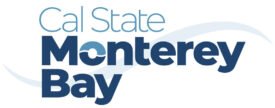Part 1: Time Management and Study Strategy Reflection
This week, I visited AcademicTips.org and concentrated on the subject of “Procrastination”, which I identified in my last journal entry as an area for self-improvement. One major recommendation from the website was splitting large projects into smaller, manageable tasks, also creating deadlines for each task. I have figured out that I often procrastinate because tasks seem too large to begin. Having a better-planned schedule with smaller goals can help break the overwhelming feeling, which would make me more productive. This process also allows for positive reinforcement, as marking off small achievements gives me momentum.
Part 2: Weekly Readings (Ethics Focus)
The activities and readings for this week focused sharply on ethics in computing, including our roles as students and professionals. I discovered multiple ethical theories and how to apply them in handling privacy, intellectual property, and professional behavior. The topic of ethical decision making in software development helped me remember that it takes more than technical skills for an individual to be an excellent computer scientist. Ethical judgment is often forgot about but it is fairly important as well. The case studies we studied helped solidify the notion that well-intentioned actions can result in disastrous repercussions if ethical issues are neglected. I also submitted the topic for my ethical essay which will also appear on this site in two weeks, which is on location services of the apps on smart phones. The topic will be: “Is it ethically acceptable for companies to collect and use individuals’ location data without explicit, informed consent?“
Part 3: Reflection on “What a Computer Science Major Needs to Know”
The “What a Computer Science Major Should Know” article presented an overview of the wide-ranging knowledge areas necessary for success in computer science. It supported the need for not just coding and algorithms, but for knowledge in areas such as system design, networking, and database, as well as the value in knowing how to communicate. My major takeaway was the focus on lifelong learning rapid changes in technology make it necessary to constantly learn new skills and knowledge. The article made me realize the worth in having well-rounded CS education and inspired me to seek learning opportunities outside the classroom. This field is always growing and expanding…
Link to the article:
https://matt.might.net/articles/what-cs-majors-should-know/Part 4: Reflection on the Code of Integrity
Part 4: Reflection on the Code of Integrity
Considering the Code of Integrity led me to really ponder the importance of academic integrity. As a student, it guarantees that I actually acquire my accomplishments and can believe in the worth of my education. It then encourages an attitude of respect among students and maintains the reputation of the CSUMB program. For professionals in the future, integrity is the foundation—taking shortcuts and plagiarism can lead to serious repercussions in the work force and affect users and clients. Maintaining integrity establishes credibility, trust, and self-respect, things very important in the academic and the work force.
